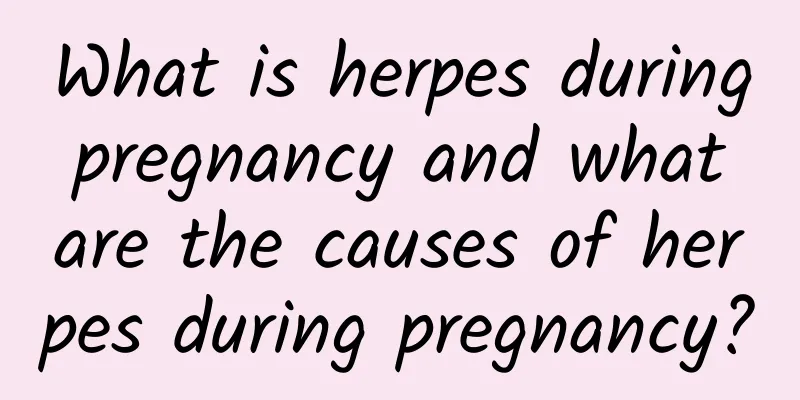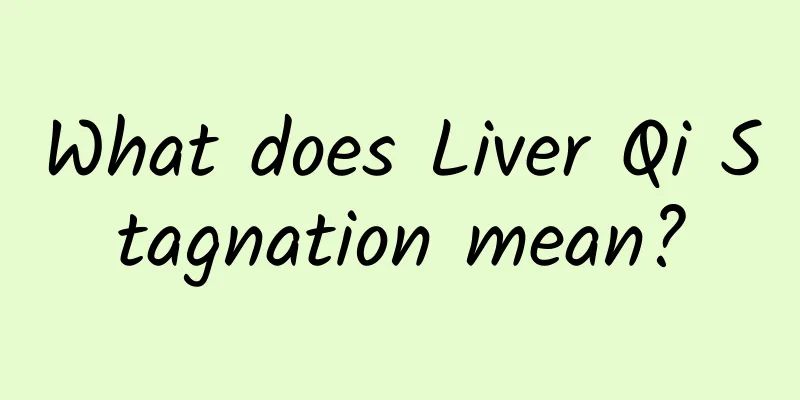What is vomiting and nausea after meals? What should I do if I feel nauseous after eating?

|
Three meals a day are the source of nutrition for the human body and the source of power for human activities. Qi and blood in traditional Chinese medicine as well as essence are inseparable from the supply of food. Many people will experience many different symptoms after a delicious meal. So what is the reason for vomiting after a meal? 1. Fullness after meals There should be quite a few people who experience bloating after meals or often have bloating symptoms. These people are generally thin, haggard, pale or yellow in complexion, and have a poor appetite. If this phenomenon occurs in middle-aged and elderly people, then the possibility of chronic gastritis is relatively high, especially chronic atrophic gastritis or gastroptosis. These are the causes of disease accumulated from irregular eating and living habits when one is young. If they occur in young people, it may be due to indigestion in the stomach or a bad spleen. Because Chinese medicine believes that the spleen and stomach are responsible for the biochemical absorption of food, and the spleen also has the function of regulating blood, so the appearance of these symptoms is a healthy signal of the spleen and stomach. 2. Pain when eating Under normal circumstances, when we eat, as long as we chew carefully enough, we can swallow smoothly without any obstruction or pain. But sometimes, there will be frequent obstructions, pauses or pain when eating. If no measures are taken, the symptoms may worsen. These are actually reminding you that you may have esophagitis, or even early symptoms of esophageal cancer, so you should seek medical attention in time to avoid delaying the disease. 3. Abdominal pain after meals This kind of pain is not pain in the whole body, but localized, mainly concentrated in the upper abdomen. We know that the upper abdomen is where the stomach is located. This kind of pain is accompanied by nausea, vomiting, and a feeling of food stagnation. The attack cycle is more frequent and the time is longer. It is more likely to occur in autumn and winter. Irritating food can also cause pain, which is actually a symptom of gastric ulcer. Gastric ulcer does not sound scary, because oral ulcers are also common. Although there will be needle-like pain, it lasts for a relatively short time, so many people do not pay attention to it. However, the harm of gastric ulcer is not that simple. This type of ulcer in the stomach has a higher chance of becoming cancerous than duodenal or oral ulcers. The cancer rate is estimated to be 1% to 7%. Moreover, the site of cancer often occurs at the edge of the ulcer, so if you have long-term upper abdominal pain, you must go to the hospital for relevant stomach examinations in time, actively cooperate with the doctor in taking medication, and consume more foods with high vitamin C content when eating, which is beneficial to the treatment of gastric ulcer symptoms. 4. Unexplained diarrhea after meals Many people are familiar with diarrhea, because for people with poor gastrointestinal function, the probability and frequency of diarrhea may be relatively high, especially in summer, when the quality of food is really difficult to guarantee, so many people have diarrhea after a meal, which is mainly caused by the internal gastrointestinal function and the quality of external food, and such symptoms will recur after a slight cold. 5. Pain in the right upper abdomen after meals Many people think that the gallbladder has no function, so some people will directly remove the gallbladder to avoid the pain of cholecystitis. However, the role of the gallbladder is crucial. Its main function is to store bile. When food enters the gastrointestinal tract, the bile stored in the gallbladder will directly pass through the bile duct into the gastrointestinal tract to help digestion and absorption. Therefore, if you usually feel pain in the upper right abdomen after eating greasy food, and it may even affect the right shoulder, this symptom is more common in people who like sweets, are obese, or often skip breakfast. These symptoms may also be a sign of cholecystitis or gallstones. 6. Abdominal pain after meals In the first symptom, we mentioned that abdominal bloating after meals is a healthy signal of the spleen and stomach. If the bloating is accompanied by pain, it means that your condition has worsened. If it is often accompanied by nausea, vomiting, or even vomiting blood, but there is no previous record of gastrointestinal disease. Conclusion: We cannot predict many symptoms after meals in time, but we should usually do a good job of gastrointestinal health care. It is very important to eat on time. Of course, it does not mean that you will suffer from serious diseases if you have such symptoms, but these symptoms can alert you and let you pay attention to your health and protect the gastrointestinal tract. The 6 discomfort symptoms after meals will gradually alleviate. |
<<: Several key points to avoid habitual ankle sprains, don't say you don't know
>>: What are the causes and symptoms of heat stroke?
Recommend
What to do if your child has enteritis and vomits? Three ways to help you relieve it
Generally speaking, when parents find that their ...
Why do I get a headache when I cough?
If you get a headache when you cough, it may be d...
Is enema good?
There are many common diseases in life, and there...
Will jaundice go up again after it goes down?
After jaundice has subsided, it may rise again. T...
How long can a person with hyperthyroidism live?
How long can a person with hyperthyroidism live? ...
Submandibular lymph node lump
There are lumps on the lymph nodes, which is a ty...
Canine Hip Dysplasia
Many people like to keep dogs, especially lonely ...
Symptoms of pityriasis rosea in the later stage: early knowledge and early prevention
There are many symptoms in the later stages of pi...
My neck keeps sweating when I fall asleep
The physiological phenomenon of sweating only occ...
Vulvar leukoplakia Chinese medicine fumigation
Vulvar leukoplakia is a relatively common gynecol...
What kind of tea is good for regulating dampness?
In fact, drinking tea is a very good health-prese...
Do kidney stones affect fertility?
Having children is a very important process for a...
How to deal with rectal prolapse after childbirth
It is easy for postpartum women to suffer from re...
What is the cause of water coming out of the belly button?
There are two main reasons for water discharge fr...
What is the most effective way to treat facial paralysis?
A large part of the cause of facial paralysis is ...









